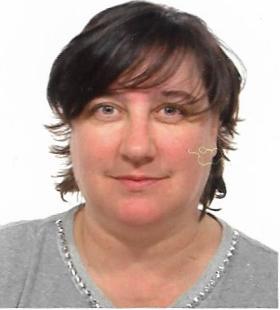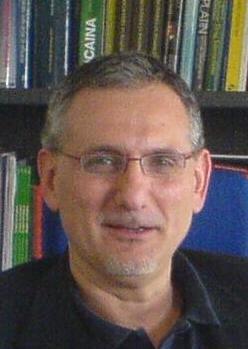Studying at the University of Verona
Here you can find information on the organisational aspects of the Programme, lecture timetables, learning activities and useful contact details for your time at the University, from enrolment to graduation.
Academic calendar
The academic calendar shows the deadlines and scheduled events that are relevant to students, teaching and technical-administrative staff of the University. Public holidays and University closures are also indicated. The academic year normally begins on 1 October each year and ends on 30 September of the following year.
Course calendar
The Academic Calendar sets out the degree programme lecture and exam timetables, as well as the relevant university closure dates..
| Period | From | To |
|---|---|---|
| INF BZ - 1° anno 1° sem | Oct 1, 2019 | Dec 20, 2019 |
| INF BZ - 2° anno 1° sem | Oct 1, 2019 | Dec 20, 2019 |
| INF BZ - 3° anno 1° sem | Oct 1, 2019 | Jan 31, 2020 |
| INF BZ - 1° anno 2° sem | Feb 3, 2020 | Apr 17, 2020 |
| INF BZ - 3° anno 2° sem | Apr 20, 2020 | Jun 8, 2020 |
| INF BZ - 2° anno 2° sem | Apr 20, 2020 | Jun 8, 2020 |
| Session | From | To |
|---|---|---|
| INF BZ - sessione invernale | Jan 7, 2020 | Feb 28, 2020 |
| INF BZ - sessione estiva | Jun 1, 2020 | Jul 31, 2020 |
| INF BZ - sessione autunnale | Sep 1, 2020 | Sep 30, 2020 |
| Session | From | To |
|---|---|---|
| 1^ SESSIONE | Oct 1, 2020 | Nov 30, 2020 |
| 2^ SESSIONE | Mar 1, 2021 | Apr 30, 2021 |
| Period | From | To |
|---|---|---|
| FESTIVITA' OGNISSANTI | Nov 1, 2019 | Nov 1, 2019 |
| FESTIVITA' IMMACOLATA CONCEZIONE | Dec 8, 2019 | Dec 8, 2019 |
| Vacanze di Natale | Dec 24, 2019 | Jan 6, 2020 |
| VACANZE DI PASQUA | Apr 10, 2020 | Apr 15, 2020 |
| FESTA DELLA LIBERAZIONE | Apr 25, 2020 | Apr 25, 2020 |
| FESTIVITA' DEL LAVORO | May 1, 2020 | May 1, 2020 |
| FESTA DELLA REPUBBLICA | Jun 2, 2020 | Jun 2, 2020 |
| Description | Period | From | To |
|---|---|---|---|
| INF BZ - tirocinio 3° anno 1^ esp | INF BZ - tirocinio 3° anno 1^ esp | Nov 17, 2019 | Dec 21, 2019 |
| INF BZ - tirocinio 2° anno 1^ esp | INF BZ - tirocinio 2° anno 1^ esp | Feb 3, 2020 | Mar 9, 2020 |
| INF BZ - tirocinio 3° anno 2^ esp | INF BZ - tirocinio 3° anno 2^ esp | Mar 2, 2020 | Apr 11, 2020 |
| INF BZ - tirocinio 2° anno 2^ esp | INF BZ - tirocinio 2° anno 2^ esp | Mar 16, 2020 | Apr 18, 2020 |
| INF BZ - tirocinio 1° anno 1^ esp | INF BZ - tirocinio 1° anno 1^ esp | Apr 20, 2020 | May 25, 2020 |
| INF BZ - tirocinio 1° anno 2^ esp | INF BZ - tirocinio 1° anno 2^ esp | Jun 1, 2020 | Jun 30, 2020 |
| INF BZ - tirocinio 3° anno 3^ esp | INF BZ - tirocinio 3° anno 3^ esp | Jul 6, 2020 | Aug 14, 2020 |
| INF BZ - tirocinio 2° anno 3^ esp | INF BZ - tirocinio 2° anno 3^ esp | Aug 11, 2020 | Sep 8, 2020 |
Exam calendar
Exam dates and rounds are managed by the relevant Medicine Teaching and Student Services Unit.
To view all the exam sessions available, please use the Exam dashboard on ESSE3.
If you forgot your login details or have problems logging in, please contact the relevant IT HelpDesk, or check the login details recovery web page.
Should you have any doubts or questions, please check the Enrollment FAQs
Academic staff
 liliana.favari@univr.it
liliana.favari@univr.it
 astrid.kustatscher@claudiana.bz.it
astrid.kustatscher@claudiana.bz.it
 sylvia.lintner@sabes.it
sylvia.lintner@sabes.it
 m.mussner@virgilio.it
m.mussner@virgilio.it
 loredana.pancheri@univr.it
loredana.pancheri@univr.it
 sara.pilotto@univr.it
sara.pilotto@univr.it
 0471067355
0471067355
 luisa.valer@claudiana.bz.it
luisa.valer@claudiana.bz.it
Study Plan
The Study Plan includes all modules, teaching and learning activities that each student will need to undertake during their time at the University.
Please select your Study Plan based on your enrollment year.
1° Year
| Modules | Credits | TAF | SSD |
|---|
Professional Laboratories (1st year)
2° Year activated in the A.Y. 2020/2021
| Modules | Credits | TAF | SSD |
|---|
Professional Laboratories (2nd year)
3° Year activated in the A.Y. 2021/2022
| Modules | Credits | TAF | SSD |
|---|
Professional Laboratories (3rd year)
| Modules | Credits | TAF | SSD |
|---|
Professional Laboratories (1st year)
| Modules | Credits | TAF | SSD |
|---|
Professional Laboratories (2nd year)
| Modules | Credits | TAF | SSD |
|---|
Professional Laboratories (3rd year)
Legend | Type of training activity (TTA)
TAF (Type of Educational Activity) All courses and activities are classified into different types of educational activities, indicated by a letter.
General and methodological nursing (2019/2020)
The teaching is organized as follows:
Learning outcomes
The course is focused on the fundamentals of general and clinical nursing in relation to the concepts of care and caring for the person and family, to the deontological principles that inspire and guide nursing practice. It provides conceptual and methodological bases for identifying nursing care needs, planning interventions and assessing outcomes. The students will develop skills in data collection through observation, interview and physical examination, in the analysis and understanding of the events reported by patients; will acquire the methodological basis for the assessment of problems or risks also through the use of assessment scales or tools to make decisions and propose prevention, treatment and monitoring interventions with respect to the needs and problems of the person. FUNDAMENTALS OF NURSING: The course introduces the student to the basic fundamentals of general and clinical nursing in relation to the concepts of health, illness, care and caring for the person and the family, to the deontological principles that inspire and guide the practice of care. NURSING CLINICAL METHODOLOGY The course aims to provide knowledge and skills related to the clinical methodology for identifying and managing nursing care needs, with particular reference to the use of assessment and monitoring methods and tools, the planning of interventions and the assessment of outcomes. Students will acquire these skills with regard to: nutritional status and alterations (obesity, cachexia, malnutrition); walking, exercise and mobility deficits; vital parameters, thermoregulation and changes in body temperature (fever and hypothermia); body care (body and oral hygiene) and self-care deficits. BASIC OF NURSING IN SURGICAL CARE: the course is aimed at learning the clinical method and the contents of preoperative surgical care, such as preoperative information and consent to the intervention, evaluation of the operative and infectious risk and physical preparation for the different types of intervention. The fundamental aspects of caring in the immediate post-operative phase will be treated, such as surveillance and monitoring, wound and drainage management, recovery of nutrition, ileus and early mobilization
Program
SYLLABUS
The process of Nursing professionalization, the legislative sources of acting professional, the priciples and ethics that guide the care model, with particular reference to the Code of Ethics, the nurse's profile, and the arrangement of the plan of studies; students' code of conduct
The evolution of health concept, the determinants of health, risk factors, preventie measures, health education.
The concept of disease, the meaning of illness and disease, the acute and chronic disease, the experiences and reactions to the disease.
The places of care and the organization of the National Health Service.
The theoretical foundations of the caring, the basic principles of caring nursing (centrality of the patient and the family, presence, superivision/surveillance, comfort, diagnosing. self-determination, continuity of care, intimacy and touch, confidentiality and respect for privacy in patient care).
The family's and community's role as health resource and support to the patient.
Bibliography
| Author | Title | Publishing house | Year | ISBN | Notes |
|---|---|---|---|---|---|
| Mortari L., Saiani L. | Gesti e pensieri di cura | MC Graw Hill, Milano | 2013 | ||
| Marcadelli S. , Artiloi G. | Nursing narrativo - un approccio innovativo per l'assistenza | MC Graw Hill Milano | 2010 | ||
| Taylor - Lillis - Lynn | Principi fondamentali dell'assistenza infermierisitica (Edizione 8) | Piccin | 2018 | ||
| Saiani, L., Brugnolli, A. | Trattato di cure infermieristiche (Edizione 3) | Idelson-Gnocchi | 2020 | 978-88-7947-576-1 | |
| Saiani L., Brugnolli A. | Trattato di Cure Infermieristiche | Idelson-Gnocchi | 2014 | ||
| T. Heather Herdman, Shigemi Kamitsuru | NANDA International Pflegdiagnosen 2018-2020 (Edizione 1) | RECOM GmbH | 2019 | 978-3-89752-140-7 | |
| Elsevier GmbH und Nicole Menche | Pflege Heute (Edizione 7) | Elsevier GmbH | 2019 | 978-3-437-26778-9 | |
| Thieme Verlag : siehe Auflistung Fachbeiräte und Mitarbeiterverzeichnis | Pflege I care (Edizione 1) | Georg Thieme Verlag | 2015 | 978-3-13-165651-3 | |
| Stefan Silbernagl & Florian Lang | Taschenatlas der Pathophysiologie | Thieme | 2013 | ||
| Brugnolli A., Saiani L. | Trattato di cure infermieristiche (Edizione 2) | Idelson-Gnocchi srl - SORBONA | 2014 | ||
| Annette Lauber, Petra Schmalstieg | Wahrnehmen und Beobachten (Edizione 4) | Georg Thieme Verlag | 2018 | 978-3-13-240652-0 |
Examination Methods
written
Career prospects
Module/Programme news
News for students
There you will find information, resources and services useful during your time at the University (Student’s exam record, your study plan on ESSE3, Distance Learning courses, university email account, office forms, administrative procedures, etc.). You can log into MyUnivr with your GIA login details: only in this way will you be able to receive notification of all the notices from your teachers and your secretariat via email and soon also via the Univr app.
Gestione carriere
Orario lezioni
COMUNICAZIONE DEL PRESIDENTE DEL COLLEGIO DIDATTICO
Carissime Studentesse,
Carissimi Studenti,
di seguito un promemoria relativo alle modalità di erogazione della didattica per il corso di studio in Infermieristica A.A. 2022/2023.
In ottemperanza alle linee guida della Commissione didattica di Ateneo, che prevedono una didattica improntata ad un pieno recupero delle modalità regolari di erogazione in presenza, la Commissione didattica del CdL nella seduta del 29 settembre 2022, ha deliberato il pieno ritorno all’utilizzo della didattica frontale in presenza.
Solo nei casi di comprovata positività al COVID-19, e/o in situazioni di particolare fragilità (sempre correlate alla pandemia) sarà previsto il collegamento sincrono in modalità streaming; a tal proposito ogni Docente, sulla propria pagina web, darà chiare indicazioni sulla modalità di fruizione della didattica.
La modalità asincrona (registrazioni delle lezioni) non è prevista.
Nell’augurarvi un buon Anno Accademico, vi saluto cordialmente
Prof. Paolo F Fabene
Guida ai programmi degli insegnamenti
Guida ai programmi degli insegnamenti
Documents
| Title | Info File |
|---|---|
|
|
pdf, it, 1594 KB, 12/12/22 |
|
|
pdf, it, 1310 KB, 02/09/21 |
Linee guida per riconoscimento cfu
Lo studente che intende chiedere il riconoscimento di moduli o insegnamenti pregressi dovrà presentare domanda, entro il 30 novembre dell’anno accademico in corso, seguendo le indicazioni indicate al link seguente: https://www.univr.it/it/i-nostri-servizi/segreterie-studenti/gestione-carriere-studenti-medicina-e-chirurgia/riconoscimento-crediti-acquisiti-da-una-carriera-pregressa-medicina
Documents
| Title | Info File |
|---|---|
|
|
pdf, it, 295 KB, 09/11/21 |
Student login and resources
Attività didattiche regime part-time
Modalità di richiesta
La domanda di iscrizione part-time può essere presentata all'inizio di ogni anno accademico e comunque entro il 30 novembre di ogni anno. Entro lo stesso termine, se necessario, lo studente potrà richiedere di tornare al regime full-time. Al link seguente la pagina del servizio https://www.univr.it/it/i-nostri-servizi/segreterie-studenti/flessibilita-nella-frequenza-dei-corsi/possibilita-di-iscrizione-part-time-e-ripristino-full-time
Una volta inviata la domanda, lo studente concorda in via preventiva con il Coordinatore della didattica professionale (CDP), il piano di studi che intende perseguire nel periodo di part-time compilando il modulo in allegato
Documents
| Title | Info File |
|---|---|
|
|
octet-stream, it, 1309 KB, 21/10/22 |
Graduation
Documents
| Title | Info File |
|---|---|
|
|
pdf, it, 242 KB, 19/01/24 |
|
|
pdf, it, 80 KB, 06/04/24 |
|
|
pdf, it, 43 KB, 06/04/24 |
|
|
pdf, it, 44 KB, 09/04/24 |
|
|
pdf, it, 148 KB, 06/04/24 |
|
|
pdf, it, 108 KB, 06/04/24 |
|
|
pdf, it, 115 KB, 06/04/24 |
|
|
pdf, it, 1487 KB, 18/02/22 |
|
|
pdf, it, 437 KB, 22/03/24 |
|
|
pdf, it, 957 KB, 22/03/24 |
|
|
pdf, it, 424 KB, 19/01/24 |











